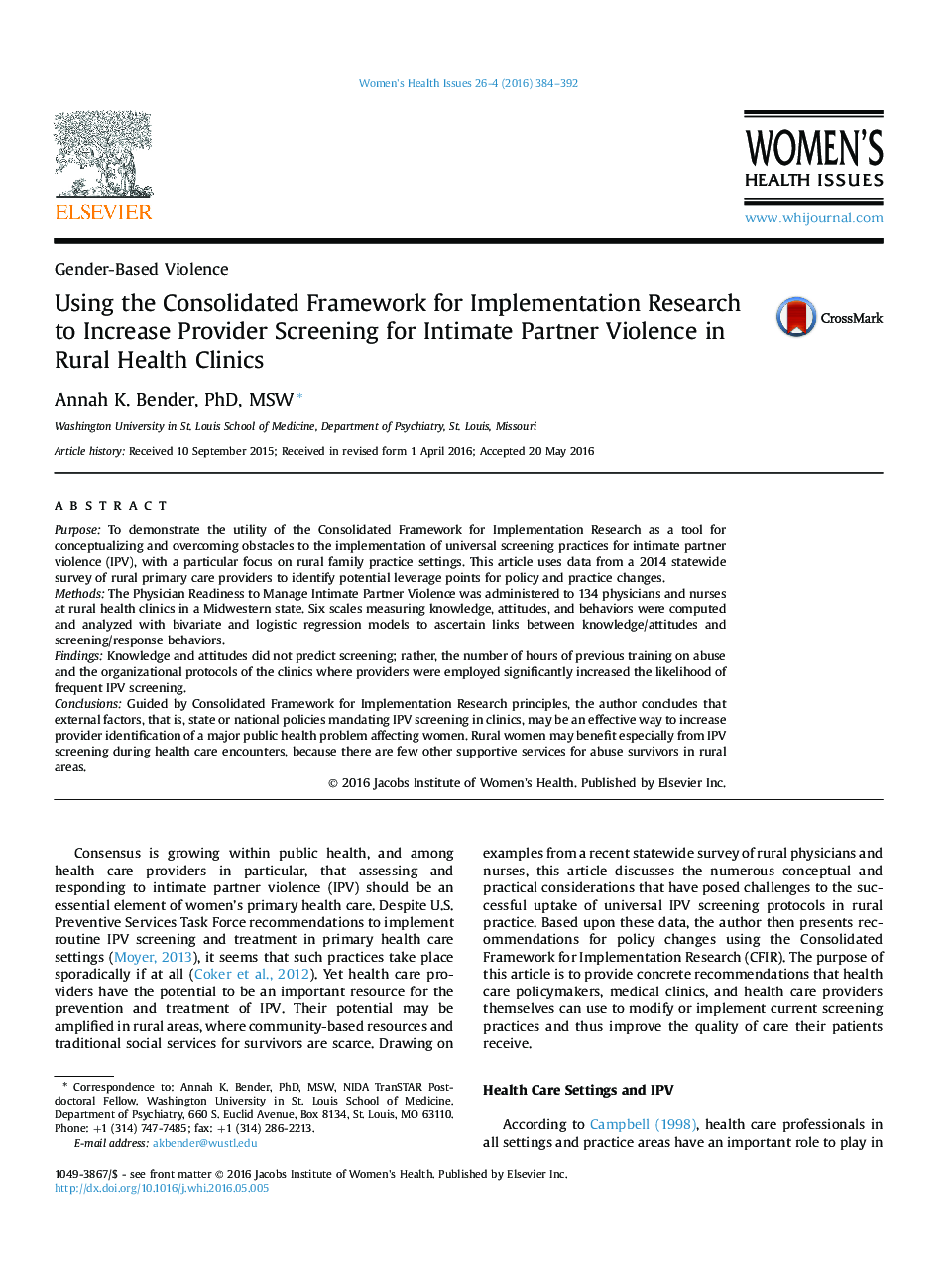| Article ID | Journal | Published Year | Pages | File Type |
|---|---|---|---|---|
| 1092837 | Women's Health Issues | 2016 | 9 Pages |
PurposeTo demonstrate the utility of the Consolidated Framework for Implementation Research as a tool for conceptualizing and overcoming obstacles to the implementation of universal screening practices for intimate partner violence (IPV), with a particular focus on rural family practice settings. This article uses data from a 2014 statewide survey of rural primary care providers to identify potential leverage points for policy and practice changes.MethodsThe Physician Readiness to Manage Intimate Partner Violence was administered to 134 physicians and nurses at rural health clinics in a Midwestern state. Six scales measuring knowledge, attitudes, and behaviors were computed and analyzed with bivariate and logistic regression models to ascertain links between knowledge/attitudes and screening/response behaviors.FindingsKnowledge and attitudes did not predict screening; rather, the number of hours of previous training on abuse and the organizational protocols of the clinics where providers were employed significantly increased the likelihood of frequent IPV screening.ConclusionsGuided by Consolidated Framework for Implementation Research principles, the author concludes that external factors, that is, state or national policies mandating IPV screening in clinics, may be an effective way to increase provider identification of a major public health problem affecting women. Rural women may benefit especially from IPV screening during health care encounters, because there are few other supportive services for abuse survivors in rural areas.
